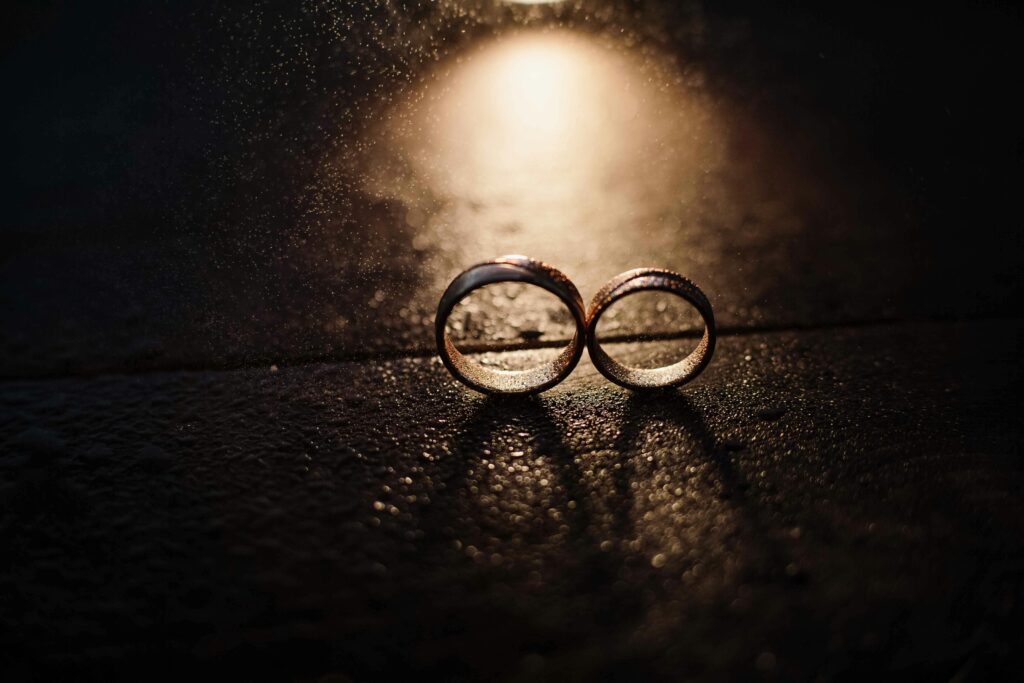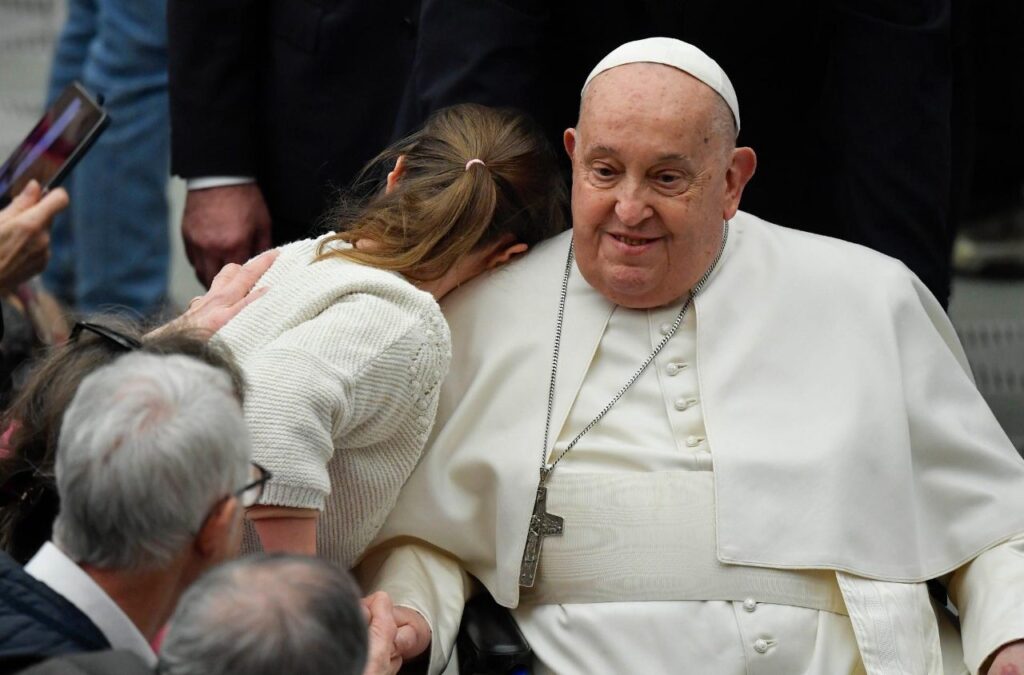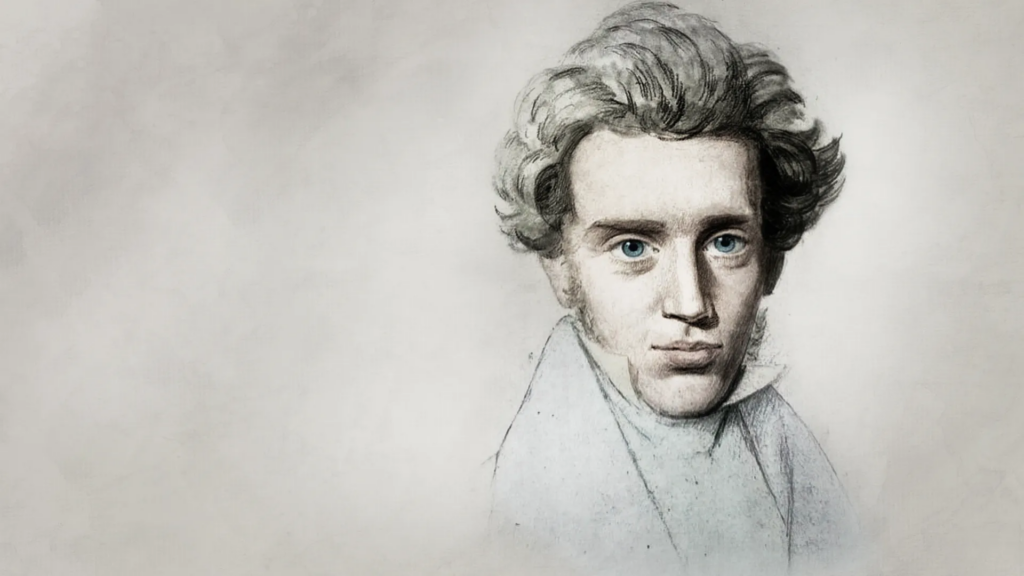Marriage is the closest representation of the Holy Trinity, God, you and I
Educate in Faith: Marriage

Within the series dedicated to “educating in the faith” I want to dedicate the next few weeks to the topic of the sacraments as a means to educate our children. We will begin with the sacrament with which our family begins: marriage.
Those unwary people who dare to come to our house in the months following our wedding will receive, whether they like it or not, a photo session, video and stories of our wedding and honeymoon, as extensive as Saint Job would have could endure, however, over time, thank God, our fury is tempered and the albums and videos are left on the shelf for longer and longer.
However, the photos and video of our wedding are a magnificent tool to talk about faith to our children.
The sacrament of marriage is our beginning as a family, but we must remember that the grace of this sacrament is not punctual, it is not given to us in one moment to disappear the next, but rather the sacrament of marriage, which takes place in a moment and in a specific place, grants us a grace that acts constantly in spouses. This fact is wonderful and fills us with hope, but for it to be effective we must remember it and resort to this grace frequently.
The sacrament of marriage is vital to explaining to our children who they are. By showing them the video of our wedding as a family, we can explain to them that God is so important in our lives, that he has been an integral part of our family from the beginning.
Years ago I was taught that marriage is the closest representation of the Holy Trinity on earth, since we are three people, God, you and I, united in one flesh. And that is precisely what makes up our marriage.
When we get married in the Church we are demonstrating our commitment to the first commandment. “I love God above all things,” and that is why I cannot join you, except through Him. If I join you apart from God, I am doing something purely human, exclusively worldly. But by uniting the two in God, we elevate our love, our vital condition and the meaning of our life to what we have been called to. We elevate it to the highest thing we can conceive, which is God. We deify our love. If we do it sincerely, and remember it frequently, we will make our marriage something very different from a merely human union, and logically we will live it in a way that will inevitably transcend to our children. They will see our marriage for what it is, a mere reflection of the love that God has for us and a sample of the love we have for Him.
When my wife and I had the difficult task of explaining to my eldest daughter “where children come from,” I realized that I was explaining much more than a biological process. Without having, it prepared, by pure inspiration, when I was already sitting in front of her, I took the Bible and read part of Genesis to her, specifically: “For this reason a man leaves his father and his mother and is united to his wife, and the two become one” (Genesis 2, 24.)
That is a magnificent moment to make our children understand, beyond how children are made, that their origin, the reason for their existence, is the love that we have for each other and that our love is shared by God, of fact is the fruit of God’s love and that they are the result of all this love.
Obviously, all this speech may be completely cheesy, but in these days of pragmatism, “when the penis of parent B is introduced into the vagina of parent A, the seminal fluid containing the sperm is expelled.” If one of them reaches the egg, a second penetration occurs that gives rise to the zygote, etc.”, adding a little feeling, without falling into sentimentality, I think can be very good. It is necessary.
The best of all is that we can watch our wedding video many times, and with our children at very different ages. The questions they are going to ask us are going to be very different at one time or another, but our answers will always have the same common thread: “for love.”
We can explain to them that if we had decided to separate our love from the love of God – theoretically it is possible (they say) and in practice it is increasingly attempted – then we would not be able to affirm that our love is “for life”, since in this world “there” is nothing for life, but by uniting our love and our dedication to God we know that it is forever, He is eternal, and He is Love, that is why our marriage is also eternal.
We can also refer to our commitment:
«I, Nacho, receive you as my wife and give myself to you, and I promise to be faithful to you in prosperity and in adversity, in health and in sickness, and thus to love and respect you all the days of my life.»
I was the one who made all those commitments. And I did it freely and voluntarily (the priest already took it upon himself to ask me before, in front of all the guests, lest over the years I would come saying that I didn’t know what I was doing, that I was too young or that I did it out of “conditioning social”.
I made those commitments, but I know that if it were up to me… I could try, but what do you want me to tell you, I’m only human.
The luck is that only the human part depends on me, in part, but that God, to whom we also joined that same day, helps us, if we want, to maintain and fulfill them. He made those same commitments to each of us as individuals and to both of us as a couple: he receives us and gives himself to us, he is faithful to us in any circumstance, he loves us and respects us. Every day. Every day.
And it’s true that the feeling is not the same, thank God (literally). We have matured (not due to the mere passage of time, that only gets older), but because we have fought every day to fulfill our commitments: to receive you and give myself to you, to be faithful to you, to love you and respect you. Doing that every day matures, come on, it does mature! Thank goodness! I don’t want to imagine myself with the same maturity as when I got married, what an idiot I would be.
And we have also had crises. Days – months – in which we have doubted ourselves and rightly so!, until you understand that if you doubt it is because you are putting all your attention on yourself, little on your wife and nothing on God.
Marriage, as a sacrament, is about three who become one. Three legs on which our family stands. If one of the three is missing, everything falls apart. How lucky we are to not have to depend on ourselves. How lucky to have God.
Related

Reversing Social Deterioration: A Task That Begins in Business Management
Alejandro Fontana
25 April, 2025
4 min

The Revolution of Tenderness
María Elizabeth de los Ríos
25 April, 2025
3 min

His Hope Does Not Die!
Mario J. Paredes
24 April, 2025
6 min

The Religious Writer with a Fighting Heart
Francisco Bobadilla
24 April, 2025
4 min
 (EN)
(EN)
 (ES)
(ES)
 (IT)
(IT)

